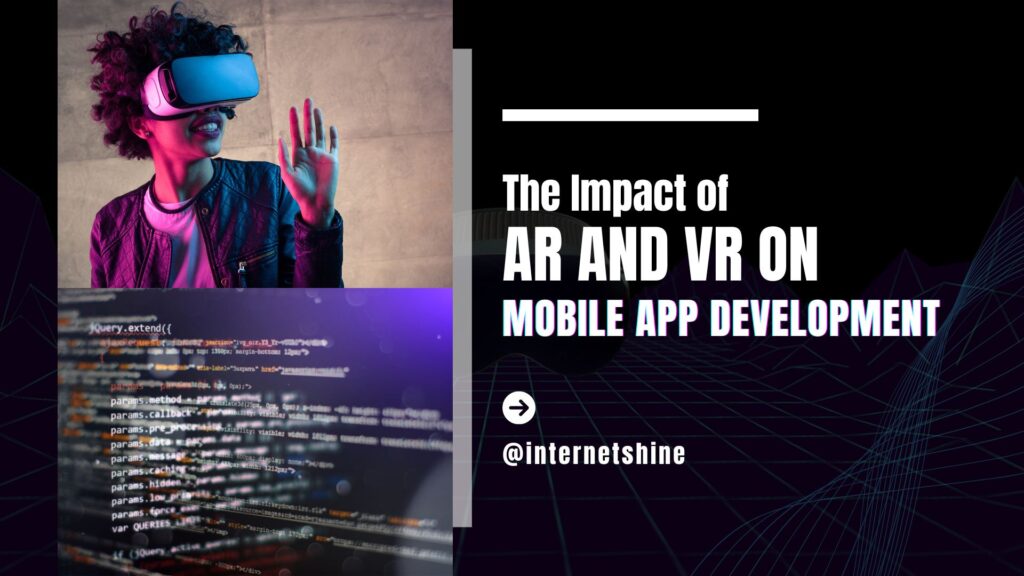In recent years, Augmented Reality (AR) and Virtual Reality (VR) have transitioned from futuristic concepts to tangible technologies that are redefining the mobile app development landscape. As these technologies continue to evolve, they are unlocking new possibilities for developers, creating immersive experiences, and changing the way users interact with mobile apps. This blog explores the profound impact of AR and VR on mobile app development, highlighting their transformative potential across various industries.
1. Enhanced User Experience
AR and VR technologies have significantly raised the bar for user experience in mobile apps. By integrating these technologies, developers can create more engaging and interactive applications that immerse users in their content. For instance, AR can overlay digital information onto the real world, allowing users to interact with their environment in ways that were previously impossible. VR, on the other hand, offers a fully immersive experience, transporting users to entirely virtual worlds. This enhanced user experience is particularly valuable in sectors like gaming, education, and retail, where engagement is key.
2. Revolutionizing Industries
AR and VR are not just limited to gaming; they are revolutionizing industries such as healthcare, real estate, and e-commerce. In healthcare, AR apps can assist surgeons by overlaying critical information during procedures, while VR can provide immersive training environments for medical students. In real estate, AR apps allow potential buyers to take virtual tours of properties, while VR can offer a 3D walkthrough of a building that hasn’t been constructed yet. These applications demonstrate how AR and VR are not just enhancing existing processes but are also creating entirely new opportunities within various industries.
3. New Development Tools and Frameworks
The rise of AR and VR has led to the development of new tools and frameworks tailored specifically for these technologies. Platforms like ARKit for iOS and ARCore for Android have made it easier for developers to create AR experiences, while Unity and Unreal Engine have become go-to solutions for VR development. These tools are designed to handle the complex requirements of AR and VR, such as real-time rendering, 3D modeling, and spatial audio, making it more accessible for developers to integrate these technologies into their mobile apps.
4. Challenges in AR and VR Mobile Development
While the potential of AR and VR is immense, developers face several challenges when incorporating these technologies into mobile apps. One of the primary challenges is ensuring that the apps are optimized for mobile devices, which have limited processing power and battery life compared to PCs or consoles. Additionally, AR and VR apps require high-quality graphics and seamless performance to provide a smooth user experience, which can be demanding on mobile hardware. Developers also need to consider user comfort, especially in VR, where prolonged use can lead to motion sickness.
5. The Future of AR and VR in Mobile Apps
The future of AR and VR in mobile app development looks promising. As mobile hardware continues to advance, with more powerful processors, improved sensors, and longer battery life, the capabilities of AR and VR apps will expand. We can expect to see more sophisticated applications that blur the lines between the physical and digital worlds, offering experiences that were once confined to science fiction. Moreover, as 5G technology becomes more widespread, it will provide the high-speed connectivity needed for real-time AR and VR experiences, further driving the adoption of these technologies in mobile apps.
6. Conclusion
AR and VR are not just trends; they are powerful technologies that are transforming the mobile app development industry. By creating more immersive and interactive experiences, they are changing how users engage with apps and opening up new opportunities across various sectors. While there are challenges to overcome, the potential rewards are significant, making AR and VR integral components of the future of mobile app development. As developers continue to explore and innovate with these technologies, we can expect to see a new generation of mobile apps that redefine the boundaries of what’s possible.
